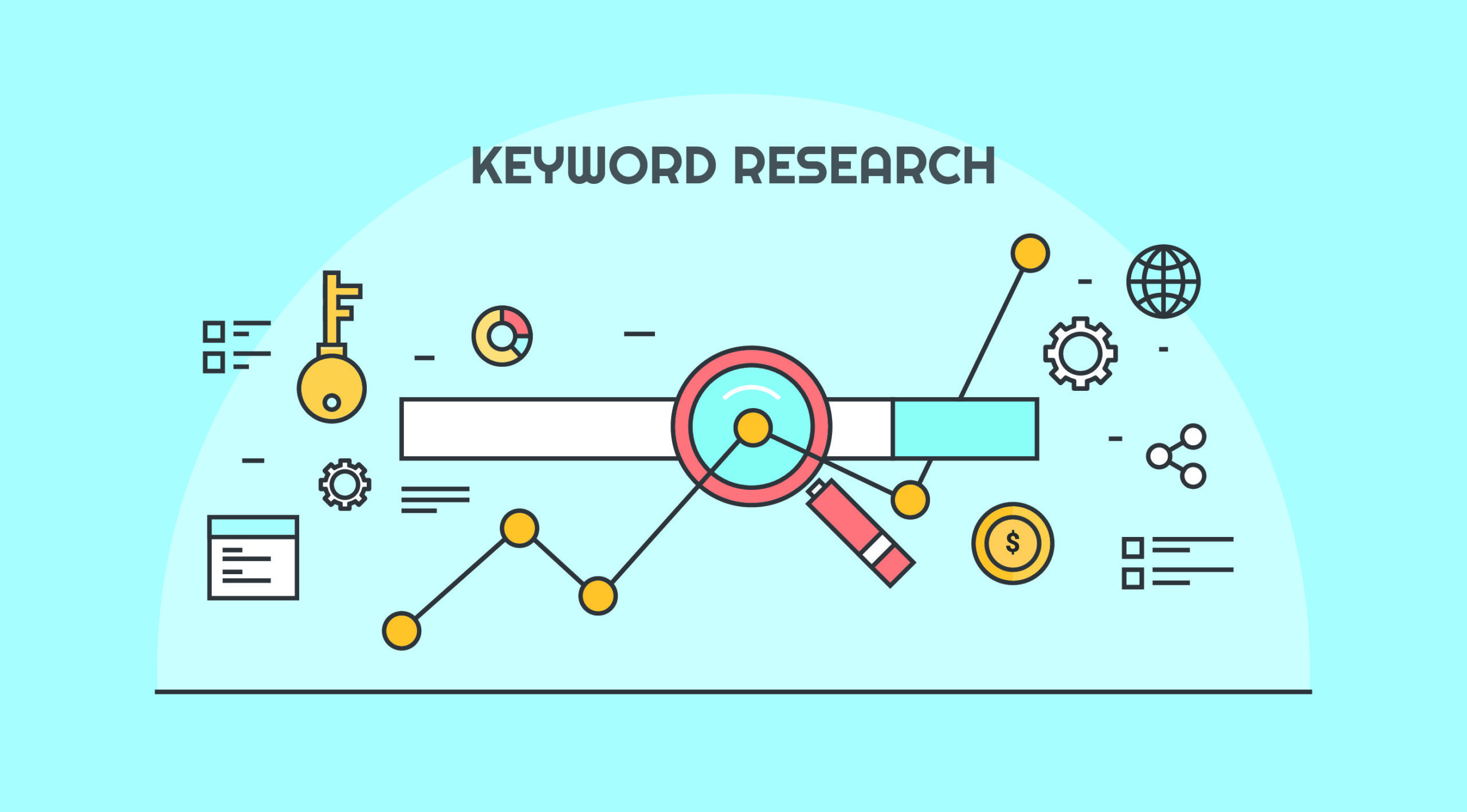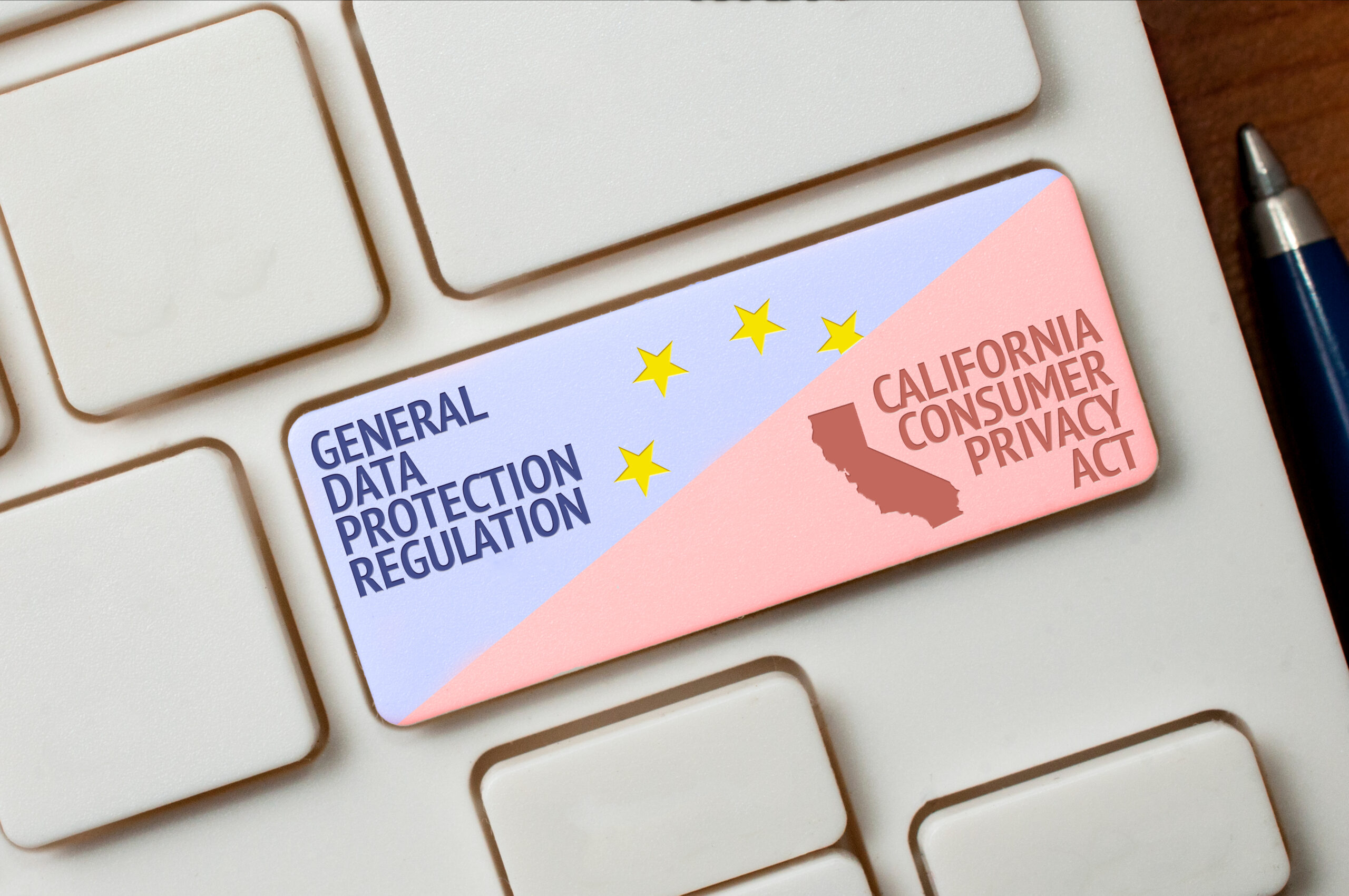Navigating the Ethical Crossroads: Data Privacy in Digital Marketing
Online visibility reigns supreme, and a pertinent ethical dilemma looms large: data privacy. In a time where every click, scroll, and purchase leaves a digital footprint, the moral implications of harnessing this data for marketing purposes cannot be overstated.
As digital marketing services become increasingly sophisticated, the line between targeted advertising and invasion of privacy becomes blurred.

The Rise of Digital Marketing Services
In recent years, the proliferation of digital technologies has reshaped the marketing landscape, ushering in an era where online presence is indispensable for businesses seeking to thrive in an increasingly competitive market.
Digital marketing encompasses various strategies and tactics to leverage digital channels to effectively reach and engage target audiences.
From search engine optimization (SEO) to social media marketing, email marketing, content marketing, and beyond, digital marketing offers a multifaceted approach to building brand awareness, driving website traffic, and nurturing customer relationships.

The Evolution of Consumer Behavior:
The rise of digital marketing services is intricately linked to the evolution of consumer behavior in the digital age. With the widespread adoption of smartphones, tablets, and other connected devices, consumers have become more digitally savvy, relying heavily on the Internet to research products, make purchasing decisions, and interact with brands. As a result, businesses have recognized the need to establish a solid online presence to remain relevant and competitive in the marketplace.

The Role of SEO Agencies:
Within digital marketing, SEO agencies are pivotal in helping businesses maximize their online visibility and achieve higher rankings in search engine results pages (SERPs). These agencies optimize websites and content to align with search engine algorithms, increasing organic traffic and improving the user experience. Through keyword research, on-page optimization, link building, and other SEO strategies, these agencies help businesses enhance their online presence and attract qualified leads.

The Importance of Digital Presence:
A robust digital presence is no longer optional—it’s essential for survival. Consumers increasingly turn to online channels to discover, research, and engage with brands, making it imperative for businesses to establish a solid digital footprint. A comprehensive digital marketing strategy enables companies to reach their target audience across various touchpoints, including search engines, social media platforms, email, and more, effectively engaging prospects and driving conversions.
The Ethical Quandary
At the core of digital marketing lies a complex ethical dilemma wherein the pursuit of marketing efficacy intersects with the imperative to respect user privacy and autonomy. This tension arises from the evolving landscape of data-driven marketing practices. SEO experts and marketers harness many digital tools and techniques to optimize campaigns, enhance user engagement, and drive conversions.
Maximizing Marketing Efficacy:
SEO experts leverage sophisticated analytics tools and techniques to glean insights into user behavior, preferences, and intent to maximize marketing efficacy. Marketers can tailor their strategies and content to resonate with target audiences by analyzing search patterns, click-through rates, and conversion metrics. This personalized approach often yields remarkable engagement and conversion rate results, enabling businesses to achieve their marketing objectives and stay ahead of the competition.
Respecting User Privacy:
However, ethical considerations regarding user privacy come to the forefront amidst the drive for marketing success. The extensive collection and utilization of user data raise significant moral concerns, particularly regarding the boundaries of data collection, storage, and utilization. Users entrust businesses and marketers with their personal information, expecting transparency, respect, and consent. Therefore, striking a delicate balance between maximizing marketing efficacy and respecting user privacy becomes imperative in navigating the ethical landscape of digital marketing.
Navigating Data Collection and Utilization:
SEO experts delve deep into the intricacies of search engine algorithms, analyzing user behavior and preferences to tailor content and advertisements. This data-driven approach enables marketers to deliver targeted and relevant content to users, enhancing user experience and driving conversions. However, the ethical implications of data collection and utilization must be considered. Marketers must tread carefully to ensure user data is collected and used ethically, with explicit consent, and by privacy regulations and best practices.
The Role of Transparency and Consent:
Transparency and consent emerge as crucial pillars of ethical digital marketing practices. Marketers must be transparent about their data collection practices, clearly communicating to users what information is being collected, how it will be used, and providing them with the option to opt in or out. By prioritizing user consent and respecting user preferences, marketers can build trust and credibility with their audience, fostering long-term relationships based on mutual respect and transparency.
The Role of SEO Agencies
SEO agencies are formidable catalysts for shaping online visibility and driving organic traffic for businesses across diverse industries. Their expertise and specialized services enhance brand visibility, attract qualified leads, and boost conversions.
-
Optimization of Online Visibility:
SEO agencies optimize a brand’s online presence to ensure maximum visibility across search engines like Google, Bing, and Yahoo. Through meticulous keyword research, content optimization, and strategic link building, these agencies strive to enhance a brand’s search engine rankings, increasing its visibility to potential customers searching for relevant products or services.

2. Driving Organic Traffic:
Organic traffic forms the backbone of sustainable online growth for businesses. SEO agencies employ many strategies to drive organic traffic to their clients’ websites, including optimizing website structure and navigation, creating high-quality and relevant content, and implementing technical SEO best practices. SEO agencies help businesses establish a robust online presence and reduce reliance on paid advertising by focusing on organic traffic generation.

3. Comprehensive SEO Services:
SEO agencies offer a comprehensive suite of services designed to address the diverse needs of their clients. These services may include:
-
- Keyword Research
- On-Page Optimization
- Off-Page Optimization
- Technical SEO
- Content Creation and Optimization
- Local SEO

4. Navigating Digital Marketing Dynamics:
SEO agencies serve as trusted advisors and strategic partners for businesses seeking to navigate the complexities of online visibility and search engine optimization. By staying abreast of the latest trends, algorithm updates, and best practices in digital marketing, these agencies ensure that their clients remain ahead of the curve and achieve sustainable growth in the digital realm.

5. Pursuit of Excellence:
SEO agencies strive to deliver results-driven solutions that meet their clients’ unique needs and objectives. Whether vying for recognition as the best SEO company or offering affordable SEO services, these agencies are committed to providing value-driven solutions that drive tangible results and foster long-term success for their clients.

Ethical Dimensions of Data Privacy:
Informed Consent:
Ethical digital marketing begins with obtaining informed consent from consumers. Transparency about data collection, usage, and the option to opt in or out are essential components of informed consent.
Data Minimization:
Emphasize collecting only the necessary data for marketing goals. Data minimization ensures ethical practices by limiting the collection of personal information to what is essential.
Data Security:
Prioritize data security to safeguard consumer data from breaches and unauthorized access. Robust cybersecurity measures are imperative to uphold ethical standards.
Honesty and Transparency:
Uphold honesty and transparency in marketing practices. Disclose sponsored content, advertisements, and the source of information to foster trust.
Data Ownership:
Respect consumers’ ownership of their data, allowing them control over access, correction, or deletion. Ethical marketers facilitate these rights.
Non-Discrimination:
Avoid discriminatory practices in marketing, ensuring personalized marketing does not discriminate based on protected characteristics.
Respect User Preferences:
Respect user preferences regarding data tracking and cookies, providing clear options for managing settings.
Accountability and Compliance:
Ensure compliance with data protection regulations such as GDPR and CCPA, appointing a data protection officer if necessary.
Data Sharing and Third Parties:
Exercise caution when sharing consumer data with third parties, ensuring ethical data privacy standards are followed.
Ethical Advertising:
Uphold industry standards and guidelines for responsible advertising, avoiding promoting harmful products or misleading claims.
Visual Reporting and Marketing Dashboards:
Utilize visual reporting and marketing dashboards to track and monitor data privacy compliance, addressing potential ethical concerns proactively.
Staying Abreast of Digital Marketing Trends:
Stay informed about emerging technologies, associated ethical considerations, and evolving ethical data practices alongside digital marketing trends.
Data-Driven Optimization
Data-driven optimization is a cornerstone of effective strategy development and campaign execution. By leveraging data insights, SEO experts and marketers can make informed decisions, refine their tactics, and maximize the impact of their campaigns.
-
Empowering Informed Decisions:
Data is a powerful tool that empowers SEO experts and marketers to make informed decisions at every marketing funnel stage. Through comprehensive data analysis, businesses can gain valuable insights into user behavior, preferences, and trends, enabling them to tailor their strategies to meet their target audience’s evolving needs and expectations.
-
Personalized Targeting:
One key benefit of data-driven optimization is its ability to enable personalized targeting. By analyzing demographic data, browsing history, and purchase patterns, SEO agencies can segment their target audience into distinct groups and deliver tailored content and offers that resonate with each segment. This personalized approach enhances user experience and increases the likelihood of conversion and customer retention.
-
Enhanced User Experience:
Data-driven optimization is crucial in enhancing the overall user experience across digital channels. By analyzing user interactions, navigation patterns, and engagement metrics, businesses can identify areas for improvement and optimize their website structure, content layout, and navigation flow to provide a seamless and intuitive user experience.
-
Continuous Improvement:
Data-driven optimization is an iterative process that involves continuous monitoring, analysis, and refinement of marketing strategies and tactics. By tracking key performance indicators (KPIs) and metrics such as website traffic, conversion rates, and customer engagement, businesses can identify areas of strength and weakness and make data-driven adjustments to optimize their campaigns for maximum effectiveness.
-
Ethical Considerations:
While data-driven optimization offers numerous benefits, it also raises essential ethical considerations concerning user privacy and consent. The relentless quest for data-driven insights must be balanced with respect for user privacy rights and adherence to regulatory requirements such as GDPR and CCPA. SEO agencies must prioritize transparency, consent, and data anonymization to ensure user data is collected and used ethically and responsibly.
Ethical Considerations
Ethical considerations become increasingly paramount as digital marketers leverage data to refine their strategies and optimize their campaigns. The collection and utilization of personal data raise significant concerns regarding user privacy, consent, and trust.

-
User Privacy:
User privacy is a fundamental ethical consideration in digital marketing. Businesses must respect users’ rights to privacy and ensure that their data is collected, stored, and used in a manner that respects their privacy preferences and complies with relevant regulations. Transparency about data collection practices and clear communication regarding how data will be used is essential to maintaining user trust.
-
Informed Consent:
Informed consent is another cornerstone of ethical digital marketing. Users should be allowed to provide explicit consent before their data is collected and used for marketing purposes. This consent should be freely given, specific, informed, and unambiguous, and users should have the option to opt in or out of data collection practices.
-
Transparency:
Transparency fosters trust between businesses and consumers. Digital marketers must be transparent about their data collection practices, clearly communicating to users what data is being collected, how it will be used, and who it will be shared with. Transparent communication builds credibility and helps mitigate privacy and data security concerns.
-
Data Anonymization:
Data anonymization is crucial for protecting user privacy in digital marketing. Businesses can anonymize user data by removing personally identifiable information from data sets while extracting valuable insights for marketing. This approach helps to minimize the risk of data breaches and unauthorized access while preserving user anonymity and privacy.
-
Respect for User Rights:
Respecting user rights is central to ethical digital marketing practices. Users should have control over their data and the ability to access, correct, or delete it as needed. Businesses must honor user requests regarding data privacy and ensure their data management practices align with users’ preferences and regulatory requirements.
-
Accountability and Responsibility:
Accountability and responsibility are core principles of ethical digital marketing. Businesses must take responsibility for data collection and management practices, ensuring compliance with relevant regulations such as GDPR, CCPA, etc. Appointing a data protection officer and implementing robust data governance policies can help businesses uphold ethical standards and mitigate risks associated with data privacy breaches.
Balancing Efficacy and Ethics
Navigating the ethical dilemmas of data privacy requires balancing between maximizing marketing efficacy and upholding ethical standards. As key players in this ecosystem, SEO agencies must prioritize transparency, integrity, and user privacy to maintain trust and credibility with their clients and target audience.
-
Transparency and Integrity:
Transparency and integrity are foundational principles of ethical digital marketing. SEO agencies must be transparent about their data collection and usage practices, ensuring that clients and users are fully informed about how their data is collected, stored, and utilized. Agencies can build trust and credibility with their stakeholders by maintaining honesty and integrity.
-
Respecting User Privacy:
Respecting user privacy is paramount in ethical digital marketing. SEO agencies must ensure that user privacy is respected at every stage of the marketing process, from data collection to campaign execution. This includes obtaining explicit consent from users before collecting their data, honoring their privacy preferences, and implementing robust security measures to safeguard their personal information.
-
Ethical Data Practices:
Ethical data practices are essential for balancing efficacy and ethics in digital marketing. SEO agencies must adhere to ethical guidelines and best practices when collecting, storing, and using data for marketing purposes. This includes data anonymization, minimizing data collection to what is necessary for the intended purpose, and ensuring that data is used to respect user privacy and consent.
-
User-Centric Approach:
A user-centric approach is critical to balancing efficacy and ethics in digital marketing. SEO agencies must prioritize the needs and preferences of their target audience, delivering personalized and relevant content while respecting user privacy and autonomy. By building meaningful connections with users based on trust and respect, agencies can achieve marketing success while upholding ethical standards.
-
Building Trust and Credibility:
Building trust and credibility is essential for long-term success in digital marketing. SEO agencies that prioritize ethical practices and transparency can foster trust with their clients and target audience, establishing themselves as reputable and trustworthy partners. By demonstrating a commitment to ethical principles, agencies can differentiate themselves in a competitive market and attract clients who value integrity and moral conduct.
The Imperative of Trust
Trust emerges as a cornerstone of successful initiatives in the dynamic digital marketing landscape. In an age where consumer trust is paramount, SEO agencies must prioritize ethical practices to cultivate enduring relationships with their audience.

-
Foundation of Successful Marketing:
Trust is the foundation of successful marketing endeavors. When consumers trust a brand or business, they are more likely to engage with its products or services, advocate for the brand, and remain loyal. Building and maintaining trust is essential for fostering positive customer relationships and driving long-term growth and profitability.
-
Impact on Brand Credibility:
Trust influences brand credibility and reputation. Brands that prioritize ethical practices and transparency earn the trust of their audience, enhancing their credibility in the marketplace. Conversely, breaching consumer trust through unethical data or deceptive marketing tactics can have far-reaching repercussions, tarnishing a brand’s reputation and eroding customer loyalty.
-
Driver of Customer Loyalty:
Trust drives customer loyalty. When consumers trust a brand, they are more likely to repeat purchases, recommend it to others, and remain loyal. By prioritizing ethical practices and delivering on their promises, SEO agencies can cultivate trust with their clients and their client’s target audience, fostering loyalty and advocacy in the long run.
-
Protection Against Reputational Risks:
Trust protects against reputational risks in the digital age. Brands prioritizing ethical practices and transparency are better equipped to weather crises and negative publicity, as they have built trust with their audience. SEO agencies can mitigate reputational risks and maintain trust even in challenging circumstances by consistently demonstrating integrity and accountability.
-
Differentiator in the Market:
Trust can be a powerful differentiator in a competitive market. Brands prioritizing ethical practices and transparency stand out, attracting customers who value integrity and reliability. By consistently delivering on their promises and prioritizing the needs and preferences of their audience, SEO agencies can differentiate themselves in the marketplace and attract clients who prioritize trust and ethical conduct.
-
Upholding Ethical Practices:
SEO agencies must prioritize ethical practices at every stage of their operations to cultivate trust with their audience. This includes respecting user privacy, obtaining explicit consent for data collection, adhering to regulatory requirements, and maintaining transparency and integrity in communication and marketing efforts. By demonstrating a commitment to ethical conduct, SEO agencies can build trust with their clients and target audience, fostering long-term relationships based on mutual respect and trust.
The Way Forward
As digital marketers confront the ethical complexities surrounding data privacy, adopting a sustainable approach to digital marketing becomes imperative. SEO agencies, in particular, play a crucial role in shaping the future of digital marketing by prioritizing ethical principles and respecting user privacy.
-
Prioritizing Ethical Principles:
A steadfast commitment to ethical principles is at the forefront of the way forward in digital marketing. SEO agencies must prioritize transparency, integrity, and accountability, ensuring ethical considerations guide every decision and action. By adhering to ethical standards and best practices, agencies can build trust and credibility with their clients and their client’s target audience, fostering enduring relationships based on mutual respect and trust.
-
Respecting User Privacy:
Respecting user privacy is paramount in the future of digital marketing. SEO agencies must prioritize protecting user data and privacy rights, ensuring that user information is collected, stored, and used in a manner that respects their preferences and complies with relevant regulations. By implementing robust data protection measures and obtaining explicit consent for data collection, agencies can demonstrate their commitment to user privacy and build trust with their audience.
-
Transparency and Consent:
Transparency and consent are foundational principles of ethical digital marketing practices. SEO agencies must be transparent about their data collection practices, clearly communicating to users what information is being collected, how it will be used, and who it will be shared with. Obtaining explicit consent from users before collecting their data ensures that users are empowered to make informed decisions about their privacy and data security.
-
Data Anonymization:
Data anonymization emerges as a critical strategy for digital marketing. By anonymizing user data and removing personally identifiable information, SEO agencies can extract valuable insights for marketing while protecting user privacy. This approach minimizes the risk of data breaches and unauthorized access, preserving user anonymity while enabling effective targeting and personalization.
-
Grounded in Respect, Integrity, and Transparency:
Ultimately, the way forward in digital marketing is grounded in respect, integrity, and transparency. SEO agencies must prioritize these core values in every aspect of their operations, from data collection and analysis to campaign execution and communication. By fostering a culture of respect, integrity, and transparency, agencies can build trust and authenticity with their audience, positioning themselves as ethical leaders in digital marketing.
Shaping a Future of Ethical Excellence in Digital Marketing
The imperative of ethical conduct and user privacy cannot be overstated when navigating the ever-evolving digital marketing landscape. As we chart a course forward, embracing transparency, integrity, and respect for user privacy emerges as the cornerstone of sustainable digital marketing practices.
At Mrkt360, we are committed to taking charge of ethical digital marketing, prioritizing our clients’ and their audiences’ trust and confidence above all else. Join us in shaping a future where digital marketing excellence is synonymous with ethical integrity.
Take the first step towards a more moral and effective digital marketing strategy today. Contact us to learn how we can help your business thrive in the digital age.
Let’s pave the way for a brighter, more ethical future in digital marketing.



Sorry, the comment form is closed at this time.